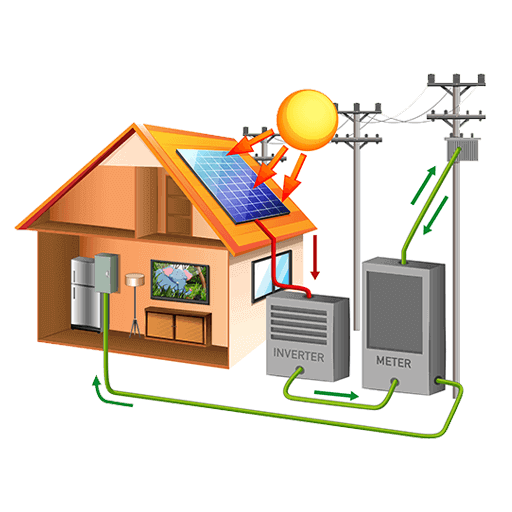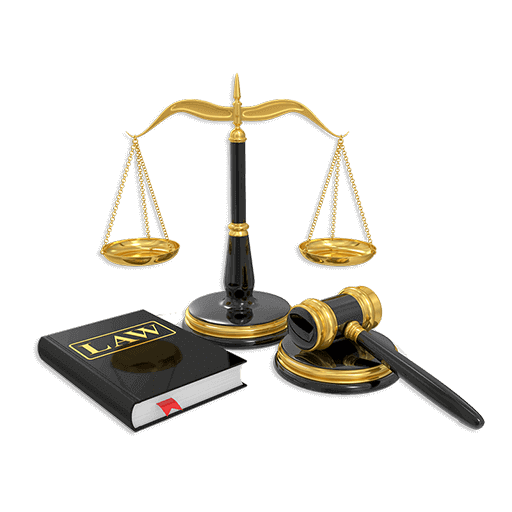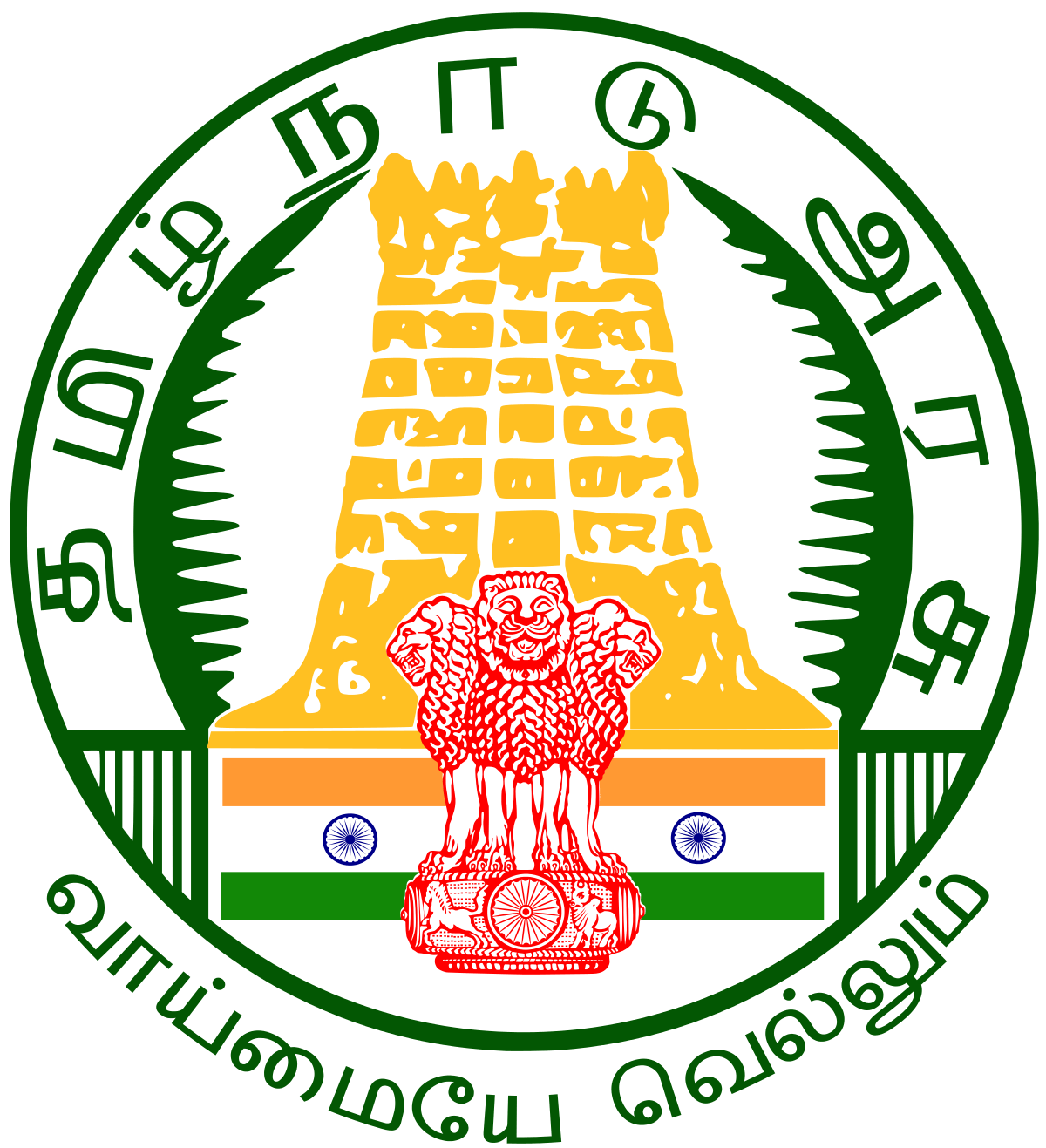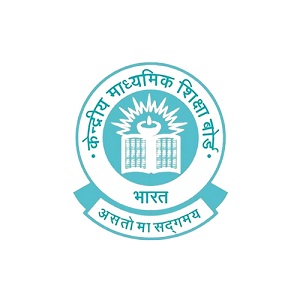- State Board
-
12th Standard
-

Biology
-

Computer Applications
-

Computer Science
-

Business Maths and Statistics
-

Commerce
-

Economics
-

Maths
-

Chemistry
-

Physics
-

Computer Technology
-

History
-

Accountancy
-

Tamil
-

Maths
-

Chemistry
-

Physics
-

Biology
-

Computer Science
-

Business Maths and Statistics
-

Economics
-

Commerce
-

Accountancy
-

History
-

Computer Applications
-

Computer Technology
-

English
12th Standard stateboard question papers & Study material
தமிழ் Subjects
English Subjects
-
-
11th Standard
-

Maths
-

Biology
-

உயிரியல் - தாவரவியல்
-

Economics
-

Physics
-

Chemistry
-

History
-

Business Maths and Statistics
-

Computer Science
-

Accountancy
-

Commerce
-

Computer Applications
-

Computer Technology
-

Tamil
-

Maths
-

Commerce
-

Economics
-

Biology
-

Business Maths and Statistics
-

Accountancy
-

Computer Science
-

Physics
-

Chemistry
-

Computer Applications
-

History
-

Computer Technology
-

Tamil
-

English
11th Standard stateboard question papers & Study material
தமிழ் Subjects
English Subjects
-
-
9th Standard
-

-

-

-

-

-

-

Maths
-

Science
-

Social Science
-

Maths
-

Science
-

Social Science
9th Standard stateboard question papers & Study material
தமிழ் Subjects
English Subjects
-
-
6th Standard
-

Maths
-

Science
-

Social Science
-

Maths
-

Science
-

Social Science
6th Standard stateboard question papers & Study material
தமிழ் Subjects
English Subjects
-
-
10th Standard
-

Maths
-

Science
-

Social Science
-

Tamil
-

Maths
-

Science
-

Social Science
-

English
-

English
10th Standard stateboard question papers & Study material
தமிழ் Subjects
English Subjects
-
-
7th Standard
-

Maths
-

Science
-

Maths
-

Science
-

Social Science
7th Standard stateboard question papers & Study material
தமிழ் Subjects
English Subjects
-
-
8th Standard
-

கணிதம் - old
-

Science
-

Social Science
-

கணிதம்
-

Maths
-

Science
-

Social Science
8th Standard stateboard question papers & Study material
தமிழ் Subjects
English Subjects
-
-
12th Standard
- CBSE Board
-
12th Standard CBSE
-

Biology
-

Physics
-

Chemistry
-

Maths
-

Accountancy
-

Introductory Micro and Macroeconomics
-

Business Studies
-

Economics
-

Computer Science
-

Geography
-

English
-

History
-

Indian Society
-

Physical Education
-

Sociology
-

Tamil
-

Bio Technology
-

Engineering Graphics
-

Entrepreneurship
-

Hindi Core
-

Hindi Elective
-

Home Science
-

Legal Studies
-

Political Science
-

Psychology
12th Standard CBSE Subject Question Paper & Study Material
-
-
11th Standard CBSE
-

Mathematics
-

Chemistry
-

Biology
-

Physics
-

Business Studies
-

Accountancy
-

Economics
-

Computer Science
-

Bio Technology
-

English
-

Enterprenership
-

Geography
-

Hindi
-

History
-

Home Science
-

Physical Education
-

Political Science
-

Psychology
-

Sociology
-

Applied Mathematics
11th Standard CBSE Subject Question Paper & Study Material
-
- 10th Standard CBSE
-
9th Standard CBSE
-

Mathematics
-

Social Science
-

Science
-

English
-

Hindi
9th Standard CBSE Subject Question Paper & Study Material
-
-
8th Standard CBSE
-

Science
-

Social Science
-

Mathematics
-

English
8th Standard CBSE Subject Question Paper & Study Material
-
-
7th Standard CBSE
-

Mathematics
-

Science
-

Social Science
-

English
7th Standard CBSE Subject Question Paper & Study Material
-
-
6th Standard CBSE
-

Mathematics
-

Science
-

Social Science
-

English
6th Standard CBSE Subject Question Paper & Study Material
-
-
12th Standard CBSE
- Free Online Test
- News
- Study Materials
-
Students
-

Stateboard Tamil Nadu
-

CBSE Board
-

Free Online Tests
-

Educational News
-

Scholarships
-

Entrance Exams India
-

Video Materials
Study Materials , News and Scholarships
-
-
Students
UNIT V
11th Standard
-
Reg.No. :
Maths
PART A
Time :
00:03:00 Hrs
Total Marks :
900
-
If a, 8, b are in AP, a, 4, b are in GP, and if a, x, b are in HP then x is
(a)2
(b)1
(c)4
(d)16
-
The sequence \(\frac { 1 }{ \sqrt { 3 } } ,\frac { 1 }{ \sqrt { 3 } +\sqrt { 2 } }, \frac { 1 }{ \sqrt { 3 } +2\sqrt { 2 } },...... \)form an
(a)AP
(b)GP
(c)HP
(d)AGP
-
The HM of two positive numbers whose AM and GM are 16, 8 respectively is
(a)10
(b)6
(c)5
(d)4
-
If Sn denotes the sum of n terms of an AP whose common difference is d, the value of Sn - 2Sn-1 + Sn-2 is
(a)d
(b)2d
(c)4d
(d)d2
-
The remainder when 3815 is divided by 13 is
(a)12
(b)1
(c)11
(d)5
-
The nth term of the sequence 1, 2, 4, 7, 11,... is
(a)n3 + 3n2 + 2n
(b)n3 - 3n2 + 3n
(c)\(\frac { n(n+1)(n+2) }{ 3 } \)
(d)\(\frac { { n }^{ 2 }-n+2 }{ 2 } \)
-
The sum up to n terms of the series \(\frac { 1 }{ \sqrt { 1 } +\sqrt { 3 } } +\frac { 1 }{ \sqrt { 3 } +\sqrt { 5 } } +\frac { 1 }{ \sqrt { 5 } +\sqrt { 7 } } +\)....is
(a)\(\sqrt { 2n+1 } \)
(b)\(\frac { \sqrt { 2n+1 } }{ 2 } \)
(c)\(\sqrt { 2n+1 } -1\)
(d)\(\frac { \sqrt { 2n+1 } -1 }{ 2 } \)
-
The nth term of the sequence \(\frac { 1 }{ 2 } ,\frac { 3 }{ 4 } ,\frac { 7 }{ 8 } ,\frac { 15 }{ 6 } \),......is
(a)2n - n - 1
(b)1 - 2-n
(c)2-n + n - 1
(d)2n-1
-
The sum up to n terms of the series \(\sqrt { 2 } +\sqrt { 8 } +\sqrt { 18 } +\sqrt { 32 } +\).....is
(a)\(\frac { n(n+1) }{ 2 } \)
(b)2n(n+1)
(c)\(\frac { n(n+1) }{ \sqrt { 2 } } \)
(d)1
-
The value of the series\(\frac { 1 }{ 2 } +\frac { 7 }{ 4 } +\frac { 13 }{ 8 } +\frac { 19 }{ 16 } +\).....is
(a)14
(b)7
(c)4
(d)6
-
The sum of an infinite GP is 18. If the first term is 6, the common ratio is
(a)\(\frac { 1 }{ 3 } \)
(b)\(\frac { 2 }{ 3 } \)
(c)\(\frac { 1 }{ 6 } \)
(d)\(\frac { 3 }{ 4 } \)
-
The coefficient of x5 in the series e-2x is
(a)\(\frac { 2 }{ 3 } \)
(b)\(\frac { 2 }{ 3 } \)
(c)\(\frac { -4 }{ 15 } \)
(d)\(\frac { 4 }{ 15 } \)
-
The value of \(\frac { 1 }{ 2! } +\frac { 1 }{ 4! } +\frac { 1 }{ 6! } +....is\)
(a)\(\frac { { e }^{ 2 }+1 }{ 2e } \)
(b)\(\frac { { (e+1) }^{ 2 } }{ 2e } \)
(c)\(\frac { { (e-1) }^{ 2 } }{ 2e } \)
(d)\(\frac { { e }^{ 2 }+1 }{ 2e } \)
-
The value of \(1-\frac { 1 }{ 2 } \left( \frac { 2 }{ 3 } \right) +\frac { 1 }{ 3 } { \left( \frac { 2 }{ 3 } \right) }^{ 2 }-\frac { 1 }{ 4 } { \left( \frac { 2 }{ 3 } \right) }^{ 2 }+....is\)
(a)\(log\left( \frac { 5 }{ 3 } \right) \)
(b)\(\frac { 3 }{ 2 } log\left( \frac { 5 }{ 3 } \right) \)
(c)\(\frac { 5 }{ 3 } log\left( \frac { 5 }{ 3 } \right) \)
(d)\(\frac { 2 }{ 3 } log\left( \frac { 2 }{ 3 } \right) \)
-
If \(\frac { { T }_{ 2 } }{ { T }_{ 3 } } \)is the expansion of (a+b)n and \(\frac { { T }_{ 3 } }{ { T }_{ 4 } } \) is the expansion of (a+b)n+3 are equal, then n = ______________
(a)3
(b)4
(c)5
(d)6
-
The Co-efficient of x-17 in \({ \left( { x }^{ 4 }-\frac { 1 }{ { x }^{ 3 } } \right) }^{ 15 }\)is _____________
(a)1365
(b)-1365
(c)3003
(d)-3003
-
If the sum of n terms of an A. P. be 3n2 - n and its common difference is 6, then its first term is ______________
(a)2
(b)3
(c)1
(d)4
-
The term without x in \({ \left( 2x-\frac { 1 }{ 2{ x }^{ 2 } } \right) }^{ 12 }\) is ______________
(a)495
(b)-495
(c)-7920
(d)7920
-
The first and last term of an A.P. are 1 and 11. If the sum of its terms is 36, then the number of terms will be ______________
(a)5
(b)6
(c)7
(d)8
-
If the first, second and last term of an A.P. are a, b and 2a respectively, then its sum is ______________
(a)\(\frac { ab }{ 2(b-a) } \)
(b)\(\frac { ab }{ b-a } \)
(c)\(\frac { 3ab }{ 2(b-a) } \)
(d)none of these
-
If in an infinite G. P. first term is equal to 10 times the sum of all successive terms, then its common ratio is ______________
(a)\(\frac { 1 }{ 10 } \)
(b)\(\frac { 1 }{ 11 } \)
(c)\(\frac { 1 }{ 9 } \)
(d)\(\frac { 1 }{ 20 } \)
-
The nth term of a G.P is 128 and the sum of its n terms is 225. If its common ratio is 2, then its first term is ______________
(a)1
(b)3
(c)8
(d)none of these
-
The value of \({ 9 }^{ \frac { 1 }{ 3 } }\) ,\({ 9 }^{ \frac { 1 }{ 9 } }\)\({ 9 }^{ \frac { 1 }{ 27}}\),\(\infty \) is ______________
(a)1
(b)3
(c)9
(d)none of these
-
The sum of the series \(\frac { 1 }{ { log }_{ 2 }^{ 4 } } +\frac { 1 }{ { log }_{ 4 }^{ 4 } } +\frac { 1 }{ { log }_{ 8 }^{ 4 } } +.....+\frac { 1 }{ { log }_{ { 2 }^{ n } }^{ 4 } } is\)______________
(a)\(\frac { n(n+1) }{ 2 } \)
(b)\(\frac { n(n+1)(2n+1) }{ 2 } \)
(c)\(\frac { n(n+1) }{ 4 } \)
(d)none of these
-
If \(\Sigma n=210\) then \(\Sigma { n }^{ 2 }\)= ______________
(a)2870
(b)2160
(c)2970
(d)none of these
-
Sum of n terms of the series \(\sqrt { 2 } +\sqrt { 8 } +\sqrt { 18 } +\sqrt { 32 } ..is\) ______________
(a)\(\frac { n(n+1) }{ 2 } \)
(b)2n(n+1)
(c)\(\frac { n(n+1) }{ \sqrt { 2 } } \)
(d)1
-
The series 1+4x+8x2 + \(\frac { 32 }{ 3 } { x }^{ 3 }+.....+\infty \ is\) ______________
(a)ex
(b)e4x
(c)e2x
(d)e8x
-
The series for log \(\left( \frac { 1+x }{ 1-x } \right) is\) ______________
(a)\(x+\frac { { x }^{ 3 } }{ 3 } +\frac { { x }^{ 5 } }{ 5 } +...+\infty \)
(b)\(2\left[ x+\frac { { x }^{ 3 } }{ 3 } +\frac { { x }^{ 5 } }{ 5 } +...+\infty \right] \)
(c)\(\frac { { x }^{ 2 } }{ 2 } +\frac { { x }^{ 4 } }{ 4 } +\frac { { x }^{ 6 } }{ 6 } +...+\infty \)
(d)\(2\left[ \frac { { x }^{ 2 } }{ 2 } +\frac { { x }^{ 4 } }{ 4 } +\frac { { x }^{ 6 } }{ 6 } +...+\infty \right] \)
-
The Co-efficient of x3 in \(\sqrt { \frac { 1-x }{ 1+x } } ,\left| x \right| <1\ is\ \)______________
(a)\(\frac { 1 }{ 2 } \)
(b)\(\frac { 3 }{ 8 } \)
(c)\(\frac { -3 }{ 8 } \)
(d)\(\frac {- 1 }{ 2 } \)
-
The value of 2 + 4 + 6 + + 2n is
(a)\(\frac { n\left( n-1 \right) }{ 2 } \)
(b)\(\frac { n\left( n+1 \right) }{ 2 } \)
(c)\(\frac { 2n\left( 2n+1 \right) }{ 2 } \)
(d)n(n + 1)
-
The coefficient of x6 in (2 + 2x)10 is
(a)10C6
(b)26
(c)10C626
(d)10C6210
-
The coefficient of x8y12 in the expansion of (2x + 3y)20 is
(a)0
(b)28312
(c)28312 + 21238
(d)20C8 28 312
-
If nC10 > nCr for all possible r, then a value of n is
(a)10
(b)21
(c)19
(d)20
-
If a is the arithmetic mean and g is the geometric mean of two numbers, then
(a)a \(\le \) g
(b)a \(\ge\) g
(c)a = g
(d)a > g
-
If (1 + x2)2 (1 + x)n = a0+ a1x + a2x2 + ... + xn+4 and if a0, a1, a2 are in AP, then n is
(a)1
(b)5
(c)2
(d)4
-
With usual notation C0 + C2 + C4 + ... is ______________
(a)2n-1
(b)2n
(c)2n+1
(d)2n+2
-
In the expansion of (2x + 3)5 the coefficient of x2 is ______________
(a)720
(b)1080
(c)810
(d)5
-
In the expansion of (1 +x )22 which term is the middle term ______________
(a)T11 and T12
(b)T11
(c)T12
(d)T13
-
AM, GM, HM denote the Arithmetic mean, Geometric mean and Harmonic mean respectively the relationship between this is ______________
(a)AM < GM < HM
(b)AM ≤ GM ≤ HM
(c)AM>GM>HM
(d)AM≥GM≥HM
-
In the series \(\frac{1}{1+\sqrt 2}+\frac{1}{\sqrt 2+\sqrt 3}+\frac{1}{\sqrt 3+\sqrt 4}+...\) some of first 24 number is ______________
(a)4
(b)\(\sqrt 24\)
(c)\(\frac{1}{\sqrt 24}\)
(d)\(\frac{1}{\sqrt 25-\sqrt 24}\)
-
1 - 2x + 3x2 - 4x3 + ..., Ixl< 1 is ______________
(a)(1-x)-2
(b)(1+x)-2
(c)(1-x)2
(d)(1+x)2
-
\(\frac{1}{1!}+\frac{1}{3!}+\frac{1}{5!}+...\) is ______________
(a)\(\frac{e^{-1}}{2}\)
(b)\(\frac{e+e^{-1}}{2}\)
(c)\(\frac{e-e^{-1}}{2}\)
(d)none of these
-
\(\sqrt \frac{1-2x}{1+2x}\) is approximately equal to ______________
(a)1- 2x-x2
(b)1 + 2x+ x2
(c)1+ 2x
(d)1-2x+x2
-
Expansion of \(log(\sqrt \frac{1+x}{1-x})\) is ______________
(a)\(x+\frac{x^3}{3}+\frac{x^5}{5}+...\)
(b)\(1.\frac{x^2}{2}+\frac{x^4}{4}+...\)
(c)\(1-x+\frac{x^2}{2}+\frac{x^3}{5}+...\)
(d)\(x-\frac{x^2}{3}+\frac{x^3}{3}+...\)
-
The value of \(1-\frac{1}{2}(\frac{3}{4})+\frac{1}{3}(\frac{3}{4})^2-\frac{1}{4}(\frac{3}{4})^3+...\)is ______________
(a)\(\frac{3}{4}log(\frac{7}{4})\)
(b)\(\frac{4}{3}log(\frac{7}{4})\)
(c)\(\frac{1}{3}log(\frac{7}{4})\)
(d)\(\frac{4}{3}log(\frac{4}{7})\)
-
The coefficient of a5 in the expansion of (3a + 5b)5 is ______________
(a)1
(b)243
(c)6750
(d)9375
-
The coefficient of x32 in the expansion of \((x^4-\frac{1}{x^3})^{15}\)______________
(a)15C4
(b)15C3
(c)15C5
(d)15C6
-
The middle term in the expansion of is \((x- \frac{2}{x})^{12}\) is ______________
(a)12C6
(b)12C626
(c)12C7
(d)12C627
-
The sum of the series C02- C12 + C22 .....+ (- 1)nC2n where n is an even integer is ______________
(a)2nCn
(b)(-1)n2nCn
(c)(-1)n2nCn-1
(d)(-1)n/2nCn/2
-
The ratio of the coefficient of x 15 to the term independent of x in \([x^2+(\frac{2}{x})]^{15}\) is ______________
(a)1:16
(b)1:8
(c)1:32
(d)1:64
-
3 log 2 + \(\frac{1}{4}-\frac{1}{2}(\frac{1}{4})^2+\frac{1}{3}(\frac{1}{4})^2\)+ . . . = ______________
(a)log 8
(b)log 10
(c)log 2
(d)log 4
-
\(\left(1+\frac{1}{\lfloor2}+\frac{1}{\lfloor4}+\frac{1}{\lfloor6}+...\right)^2-\left(1+\frac{1}{\lfloor3}+\frac{1}{\lfloor5}+\frac{1}{\lfloor7}+...\right)^2=\)______________
(a)1
(b)2
(c)e
(d)2e
-
\(\frac{2}{1!}+\frac{4}{3!}+\frac{6}{5!}+. . .\infty =\) ______________
(a)e
(b)2e
(c)\(\frac{1}{e}\)
(d)e2
-
The larget coefficients in the expansion of (1 + X)24 is ______________
(a)24C24
(b)24C13
(c)24C12
(d)24C11
-
Sum of the binomial coefficients is ______________
(a)2n
(b)n2
(c)2n
(d)n+17
-
The last term in the expansion of (2 +\(\sqrt { 3 } \))8 ______________
(a)81
(b)27
(c)\(\sqrt { 3 } \)
(d)3
-
The sum of the coefficients in the expansion of (1 - x)10 is ______________
(a)0
(b)1
(c)102
(d)1024
-
The value of nC0 - nC1 + nC2 - nC3 ... + (-1)nnCn is ______________
(a)2n+1
(b)n
(c)2n
(d)0
-
The value of n for which \(\frac{a^{n+1}+b^{n+1}}{a^n+b^n}\) is the arithmetic mean of a and b is ______________
(a)1
(b)2
(c)4
(d)0
-
\(\frac{1}{q+r},\frac{1}{r+p},\frac{1}{p+q}\) are in A.P., then ______________
(a)p,q,r are inA.P
(b)p2,q2,r2 are inA.P
(c)\(\frac{1}{p},\frac{1}{q},\frac{1}{r}\)
(d)p,q,r are in H.P.
-
If a,b, c are in A.P, as well as in G.P then ______________
(a)a = b ≠ c
(b)a ≠ b = c
(c)a ≠b ≠ c
(d)a = b = c
-
The sum of 40 terms of an A.P whose first term is 2 and common difference 4 will be ______________
(a)3200
(b)1600
(c)200
(d)2800
-
21/4 41/8 81/16 161/32 . . . = ______________
(a)1
(b)2
(c)\(\frac{3}{2}\)
(d)\(\frac{5}{2}\)
-
If x, 2x + 2, 3x + 3 . . . are in G.P, then the 4th term is ______________
(a)27
(b)-27
(c)13.5
(d)-13.5
-
If an A.P the sum of terms equidistant from the beginning and end is equal to ______________
(a)first term
(b)second term
(c)sum of first and last term
(d)last term
-
Expand \(\left( { 2x }^{ 2 }-\frac { 3 }{ x } \right) ^{ 3 }\)
-
Expand \(\left( { 2x }^{ 2 }-3\sqrt { 1-{ x }^{ 2 } } \right) ^{ 4 }+({ 2x }^{ 2 }+3\sqrt { 1-{ x }^{ 2 }) } ^{ 4 }\)
-
Compute 1024
-
Compute 994
-
Compute 97
-
Using binomial theorem, indicate which of the following two number is larger (1.01)1000000 (OR)10, 000
-
Find the Co-efficient of x15 in \(\left( { x }^{ 2 }+\frac { 1 }{ { x }^{ 3 } } \right) ^{ 10 }\)
-
Find the Co-efficient of x6 and the co -efficient of x2 in \(\left( { x }^{ 2 }-\frac { 1 }{ { x }^{ 3 } } \right) ^{ 6 }\)
-
Find the Co-efficient of x4 in the expansion (1+x3)50 \(\left( { x }^{ 2 }+\frac { 1 }{ { x }^{ 3 } } \right) ^{ 5 }\)
-
Find the Constant term of \(\left( { 2x }^{ 3 }-\frac { 1 }{ { 3x }^{ 2 } } \right) ^{ 5 }\)
-
Expand the following in ascending powers of x and find the condition on x for which the binomial expansion is valid.
\(\frac { 1 }{ 5+x } \) -
Expand the following in ascending powers of x and find the condition on x for which the binomial expansion is valid.
\(\frac { 2 }{ { \left( 3+4x \right) }^{ 2 } } \) -
Expand the following in ascending powers of x and find the condition on x for which the binomial expansion is valid.
\({ \left( 5+{ x }^{ 2 } \right) }^{ \frac { 2 }{ 3 } }\) -
Expand the following in ascending powers of x and find the condition on x for which the binomial expansion is valid.
\({ \left( x+2 \right) }^{ -\frac { 2 }{ 3 } }\) -
Find \(\sqrt [ 3 ]{ 1001 } \) approximately. (two decimal places).
-
Prove that \(\sqrt [ 3 ]{ { x }^{ 3 }+6 } -\sqrt [ 3 ]{ { x }^{ 3 }+3 } \) is approximately equal to \(\frac { 1 }{ { x }^{ 2 } } \) when x is sufficiently large.
-
Prove that \(\sqrt { \frac { 1-x }{ 1+x } } \) is approximately equal to 1 - x + \(\frac{x^2}{2}\) when x is very small.
-
Find the last two digits of the number 3600
-
If n is a postive integer, show that 9n+1 - 8n - 9 is always divisible by 64
-
if n is an odd positive integer, prove that the Co-efficients of the middle terms in the expansion equal
-
if the binomial co-efficients of three consecutive terms in the expansion of ( a + xn) are in the radio 1:7:42 then find n
-
In the binomial coefficient of (1+x)n the Coefficients of the 5th, 6th and 7th terms are in A.P find all values of n
-
Prove that \({ C }_{ 0 }^{ 2 }+{ C }_{ 1 }^{ 2 }+{ C }_{ 2 }^{ 2 }+...=\frac { (2n)! }{ (n)! } \)
-
Write the first 6 terms of the exponential series e5x
-
Write the first 6 terms of the exponential series e-2x
-
Write the first 6 terms of the exponential series \({ e }^{ \frac { 1 }{ 2 } x }\)
-
If n is a positive integer and R is a nonnegative integer. prove that the co-efficients of xr and xn-r Expansion of (1+x)n are equal
-
If a and b are distinct integers, prove that an - bn, is the factor of an -bn, whenever n is a positive integer [Hint: write an = (a-b+b)]n
-
In the binomial expansion of (a+b)n the coefficients of the 4th and 13th terms are equal to each other, find n.
-
Write the first 4 terms of the logarithmic series of log (1 + 4x). Find the intervals on which the expansions are valid
-
Write the first 4 terms of the logarithmic series of log (1 - 2x). Find the intervals on which the expansions are valid
-
Write the first 4 terms of the logarithmic series of \(\log { \left( \frac { 1+3x }{ 1-3x } \right) } \). Find the intervals on which the expansions are valid
-
Write the first 4 terms of the logarithmic series of \(\log { \left( \frac { 1-2x }{ 1+2x } \right) } \). Find the intervals on which the expansions are valid
-
If \(y=x+\frac { { x }^{ 2 } }{ 2 } +\frac { { x }^{ 3 } }{ 3 } +\frac { { x }^{ 4 } }{ 4 } ....\) then show that \(x=y-\frac { { y }^{ 2 } }{ 2! } +\frac { { y }^{ 3 } }{ 3! } +\frac { { y }^{ 4 } }{ 4! } +.....\)
-
If p - q is small compared to either p or q, then show that \(n\sqrt { \frac { p }{ q } } =\frac { \left( n+1 \right) p+\left( n-1 \right) q }{ \left( n-1 \right) p+\left( n+1 \right) q } \)
Hence find \(8\sqrt { \frac { 15 }{ 16 } } \) -
Find the coefficient of x4 in the expansion of \(\frac { 3-4x+{ x }^{ 2 } }{ { e }^{ 2x } } \)
-
Find the value of \(\sum _{ n=1 }^{ \infty }{ \frac { 1 }{ { 2 }^{ n-1 } } \left( \frac { 1 }{ { 9 }^{ n-1 } } +\frac { 1 }{ { 9 }^{ 2n-1 } } \right) } \)
-
Find the sum of first n terms of the series 12 + 32 + 52+...
-
Find a negative value of m if the Co-efficient of x2 in the expansion of (1+x)m, |x|<1 is 6
-
Show that \(n!>\left( \frac { n }{ e } \right) ^{ 2 }\) for n ∈ N
-
Find the general term in the expansion of \({ \left( \frac { 4x }{ 5 } -\frac { 5 }{ 2x } \right) }^{ 9 }\)
-
Find the middle term in \({ \left( x-\frac { 1 }{ 2y } \right) }^{ 10 }\)
-
Find the greatest term in (1 + 2x)8 when x = 2.
-
Find the 5th term in the sequence whose first three terms are 3, 3, 6 and each term after the second is the sum of the two terms preceding it.
-
Write down the series whose rth term is \(\frac{1}{3}r\). Is it an arithmetic series?
-
Determine the number of terms in the G. P {Tn} if T1 = 3, Tn = 96 and Sn = 189.
-
If \(x=a+\frac { a }{ r } +\frac { a }{ { r }^{ 2 } } +...+\infty ,y=b-\frac { b }{ r } +\frac { b }{ { r }^{ 2 } } +.....+\infty \quad z=c+\frac { c }{ { r }^{ 2 } } +\frac { c }{ { r }^{ 4 } } +...+\infty\) then show that \(\frac{xy}{z}=\frac{ab}{c}\)
-
If G is the G. M. between a and b show that \(\frac { 1 }{ { G }^{ 2 }-{ a }^{ 2 } } +\frac { 1 }{ { G }^{ 2 }-{ b }^{ 2 } } =\frac { 1 }{ { G }^{ 2 } } \)
-
If a, b, c are in A.P., show that (a-c)2 = 4(b2 - ac).
-
If three distinct real numbers a, b, c are in G.P and a + b + c = bx then show that \(x\le -1\quad or\quad x\ge 3\)
-
If H be the H. M. between a and b, then show that (H - 2a) (H - 2b) = H2
-
Find the nth term of the series 3 - 6 + 9 -12 + ...
-
Find the expansion of (2x + 3)5.
-
Evaluate 984 .
-
Find the middle term in the expansion of (x +y)6.
-
Find the middle terms in the expansion of (x + y)7.
-
Find the coefficient of x6 in the expansion of (3 + 2x)10.
-
Find the coefficient of x3 in the expansion of (2 - 3x)7.
-
Find the last two digits of the number 7400.
-
Prove that if a, b, c are in HP, if and only if \({a \over c}={a-b\over b-c}.\)
-
If the 5th and 9th terms of a harmonic progression are \({1\over 19}\) and \({1 \over 35},\) find the 12th term of the sequence.
-
Find seven numbers A1, A2, ... , A7 so that the sequence 4, A1, A2, ... , A7, 7 is in arithmetic progression and also 4 numbers G1, G2, G3, G4 so that the sequence 12, G1, G2, G3, G4, is in geometric progression.
-
If the product of the 4th, 5th and 6th terms of a geometric progression is 4096 and if the product of the 5th, 6th and 7th terms of it is 32768, find the sum of first 8 terms of the geometric progression.
-
Find the term independent of x in the expansion of \((x^2+\frac{3}{x})^{15}\).
-
Find the coefficient x9 in the expansion of \((ax^2-\frac{b}{cx})^{12}\).
-
With usual notation find the sum C0 + 3C1 + 5C2 + ... + (2n + 1)Cn where Cr is representing nCr.
-
Which two consecutive terms in the expansion (1 +x)15 have equal coefficients.
-
Find the sum up to n terms of the series : \(1+{6\over 7}+{11\over 49}+{16\over 343}+...\)
-
Find the sum of the first n terms of the series \({1\over 1+\sqrt{2}}+{1\over\sqrt{2}+\sqrt{3}}+{1\over\sqrt{3}+\sqrt{4}}+...\)
-
Find \(\sum_{k=1}^{n}{1\over k(k+1)}.\)
-
Find a positive value of m for which the coefficient of x2 in the expansion of (1 + x)m is 6.
-
In the binomial expansion of (1+a)m+n, Prove that the coefficients of am and an are equal.
-
Find the \(\sqrt [ 3 ]{ 126 } \) approximately to two decimal places.
-
If the roots of the equation (q - r) x2 + (r - p)x + p - q = 0 are equal, then show that p, q and r are in A.P.
-
If a, b, c are respectively the pth qth and rth terms of a GP. show that (q - r) log a + (r - p) log b + (p - q) log c = 0.
-
Write the first 6 terms of the sequences whose nth terms are given below and classify them as arithmetic progression, geometric progression, arithmetic-geometric progression, harmonic progression and none of them. \(\frac { 1 }{ 2^{ n+1 } } \)
-
Write the first 6 terms of the sequences whose nth terms are given below and classify them as arithmetic progression, geometric progression, arithmetic geometric progression, harmonic progression and none of them \(\frac { \left( n+1 \right) \left( n+2 \right) }{ \left( n+3 \right) (n+4) } \)
-
Write the first 6 terms of the sequences whose nth terms are given below and classify them as arithmetic progression, geometric progression,arithmetic-geometric progression, harmonic progression and none of them 4\(\left( \frac { 1 }{ 2 } \right) ^{ n }\)
-
Write the first 6 terms of the sequences whose nth terms are given below and classify them as arithmetic progression, geometric progression, arithmetic -geometric progression, harmonic progression and none of them \(\frac { (-1)^{ n } }{ n } \)
-
Write the first 6 terms of the sequences whose nth terms are given below and classify them as arithmetic progression, geometric progression, arithmetic -geometric progression, harmonic progression and none of them \(\frac { 2n+3 }{ 3n+4 } \)
-
Write the first 6 terms of the sequences whose nth terms are given below and classify them as arithmetic progression, geometric progression, arithmetic -geometric progression, harmonic progression and none of them 2018
-
Write the first 6 terms of the sequences whose nth terms are given below and classify them as arithmetic progression, geometric progression, arithmetic - geometric progression, harmonic progression and none of them \(\frac { 3n-2 }{ 3^{n-1} } \)
-
Write the first 6 terms of the sequences whose nth term an given below
\({ a }_{ n }=\begin{cases} n+1\quad if\quad n\quad is\quad odd \\ n\quad \quad if\quad n\quad is\quad even \end{cases}\) -
Write the first 6 terms of the sequences whose nth term an given below \(a_n= \begin{cases}n & \text { if } n \text { is } 1,2 \text { or } 3 \\ a_{n-1}+a_{n-2}+a_{n-3} & \text { if } n>3\end{cases}\)
-
Write the nth term of the following sequences
2,2,4,4,6,6 -
Write the nth term of the following sequences
\(\frac { 1 }{ 2 } ,\frac { 2 }{ 3 } ,\frac { 3 }{ 4 } ,\frac { 4 }{ 5 } ,\frac { 5 }{ 6 } \) -
Write the nth term of the following sequences
\(\frac { 1 }{ 2 } ,\frac { 3 }{ 4 } ,\frac { 5 }{ 6 } ,\frac { 7 }{ 8 } ,\frac { 9 }{ 10 } \) -
Write the nth term of the following sequences
6,10, 4, 12, 2, 14, 0, 16, -2... -
The product of three increasing numbers in GP is 5832. if we add 6 to the second number and 9 to the third number, then resulting number form an AP. Find the numbers in GP
-
Write nth term of the Sequence \(\frac { 3 }{ { 1 }^{ 2 }{ 2 }^{ 2 } } ,\frac { 5 }{ { 2 }^{ 2 }{ 3 }^{ 2 } } ,\frac { 7 }{ { 3 }^{ 2 }{ 4 }^{ 2 } } \) as a difference of two terms
-
If tk the kth term of a GP, then show that tn-k, tn, tn+k also form a GP for any postive integer K
-
The first three terms in the expansion of (1 + ax)n are 1 + 12x + 64x2. Find n and a
-
Prove that in the expansion of (1+x)n, the Co-efficient of terms equidistant from the beginning and from the end are equal
-
If a,b,c are in geometric progressions and if \({ a }^{ \frac { 1 }{ x } }={ b }^{ \frac { 1 }{ y } }={ c }^{ \frac { 1 }{ z } }\) , then prove that x, y, z are in arithmetic progression
-
Show that the sequence where log a,\(log\frac { { a }^{ 2 } }{ b^{ 1 } } log\frac { { a }^{ 2 } }{ { b }^{ 2 } } \) ..is an A.P
-
The AM of two numbers exceeds their GM by 10 and HM by 16, Find the numbers
-
For what value of n, the nth term of the series "3 + 10 + 17 +..+ and 63 + 65 + 67 +... are equal
-
Find the A.P in which the sum of any number of terms is always there times the square of the number of these terms
-
Find the co-efficient of xn in the series 1 + (a+bx) + \(\frac { (a+bx)^2}{ 2! } +\frac { (a+bx)^{ 3 } }{ 3! } \)
-
Sum the series \(\frac { 2 }{ 5 } +\frac { 2 }{ { 3.5 }^{ 3 } } +\frac { 2 }{ { 5.5 }^{ 5 } } ....\infty \)
-
The sum of two members is\(\frac { 13 }{ 6 } \). An even number A.M.S are being inserted between them and their sum exceeds their number by 1. Find the number of A.M.S inserted.
-
The first term of a G.P is 1. The sum of third and fifth terms is 90. Find the common ration of the G.P
-
Find all the sequence which are simultaneously arithmetic and geometric progression.
-
If the mth term of a H.P is n and nth term is m, then show that its pth term is \(\frac{mn}{p}\).
-
If two G.M's g1, g 2 and g3 and one A.M be inserted between two numbers then show that 2A = \(\frac { { g }_{ 1 }^{ 2 } }{ { g }_{ 2 } } +\frac { { g }_{ 2 }^{ 2 } }{ { g }_{ 1 } } \)
-
How many terms of the G.P.\(\sqrt { 3 } ,3\sqrt [ 3 ]{ 3 } \) Sum upto 39 + 13\(\sqrt { 13 } \) ?
-
The Sum of infinite number of terms of G.P is 23 and the sum of their sequence is 69. Find the G.P
-
If a, b, c are in A.P b, c, d are in G.P, c, d, e are in H.P then show that a, c, e in G.P
-
The 2nd, 3rd and 4th terms in the binomial expansion of (x + a)n are 240, 720 and 1080 for a suitable value of x. Find x, a and n.
-
Using Binomial theorem, prove that 6n - 5n always leaves remainder 1 when divided by 25 for all positive integer n.
-
Expand \({\left( 2x-{1\over 2x} \right)}^{4}.\)
-
If n is an odd positive integer, prove that the coefficients of the middle terms in the expansion of (x+ y)n are equal.
-
Find the sum : \(1+{4\over5}+{7\over 25}+{10\over125}+.....\)
-
Insert 5 arithmetic means between 3 and 15.
-
If pth term of an AP is q and qth term is p, find (p + q)th term.
-
Find 3 numbers in AP where sum is 15 and sum of their reciprocals is \(\frac{71}{105}.\)
-
Find 3 numbers in GP where sum is 24 and product is 216.
-
Find \(\sum_{1}^{\infty}{\frac{1}{(k+1)(k+2)}}\).
-
Expand (1+ x)\(2\over 3\) up to four terms for |x| < 1.
-
Write the first 6 terms of the sequences whose nth term an is given below:
\(a_n=\begin{cases} 1 \\ 2 \\{a}_{n-1}+{a}_{n-2} \\\end{cases}\)\(if\ n=1\\if\ n=2,\\if\ n>3\) -
Find the coefficient of the term involving x32 and x-17 in the expansion of \((x^{4}-\frac{1}{x^{3}})^{15}\).
-
If the sum of the coefficients in the expansion of (x+y)n is 4096. Then find the greatest coefficient in the expansion.
-
Find the coefficient of \(\frac{1}{x^{17}}\) in the expansion of \((x^{4}-\frac{1}{x^{3}})^{15}\).
-
If p is a real number and if the middle term in the expansion of \((\frac{p}{2}+2)^{8}\) is 1120, find p.
-
Find the first five terms of the sequence given by an = {\({ a }_{ 1 }=1\\ { a }_{ n }={ a }_{ n-1 }+2,\quad n\ge 2\)
-
Find the 18th and 25th terms of the sequence defined by
an = {\(n(n+2),\quad if\quad n\quad is\quad even\quad natural\quad number\\ \frac { 4n }{ { n }^{ 2 }+1 } ,\ if\ n\ is\ odd\ natural\ number\\ \) -
Write the first six terms of the sequences given by a1 = a2 = 1, an = an-1+ an-2 (n ≥ 3)
-
Write the first six terms of the sequences given by a1 = 4, an+1 = 2nan.
-
An A.P. consists of 21 terms. The sum of the three terms in the middle is 129 and of the last three is 237. Find the series.
-
Prove that the product of the 2nd and 3rd terms of an arithmetic progression exceeds the product of the first and fourth by twice the square of the difference between the 1st and 2nd.
-
If the pth, qth and rth terms of an A.P. are a, b, c respectively, prove that a (q - r) + b (r - p) + c (p - q) = 0.
-
If a, b, c are in A.P. and p is the A.M. between a and b and q is the A.M. between band c, show that b is the A.M. between p and q.
-
If x, y, z be respectively the pth, qth and rth terins ofa G.P. show that xq-r, yr-p, zp-q = 1
-
If the ratio of the sums of m terms and n terms of an A.P. be m2 : n2, prove that the ratio of its mth and nth terms is (2m - 1) : (2n - 1).
-
The sum of first three terms of a G.P. is to the sum of the first six terms as 125: 152. Find the common ratio of the G.P.
-
Find the sum to n terms the series: (x + y) + (x2+ Xy + y2)+ (x2+ x2y + xy + y3) + ...
-
Sum the series: (1 + x) + (1 + x + x2) + (1 + x + x2 +x3) + ... up to n terms
-
Sum up to n terms the series:
7 + 77 + 777 + 7777 + ... -
Write the first four terms in the expansions of the following
\(\frac { 1 }{ { (2+x) }^{ 4 } } where\left| x \right| >2\) -
Write the first four terms in the expansions of the following
\(\frac { 1 }{ \sqrt [ 6 ]{ 6-3x } } where\left| x \right| <2\) -
Evaluate the following:
\(\sqrt [ 3 ]{ 1003 } \) correct to 4 places of decimals -
Evaluate the following:
\(\frac { 1 }{ \sqrt [ 3 ]{ 128 } } \)correct to 4 places of decimals -
If x so large prove that \(\sqrt { { x }^{ 2 }+25 } -\sqrt { { x }^{ 2 }+9 } =\frac { 8 }{ x } \) nearly.
-
Show that \({ x }^{ n }=1+n\left( 1-\frac { 1 }{ x } \right) +\frac { n(n+1) }{ 1.2 } \left( 1-\frac { 1 }{ x } \right) ^{ 2 }+...\)
-
Find the sum up to the 17th term of the series \(\frac { { 1 }^{ 3 } }{ 1 } +\frac { { 1 }^{ 3 }+{ 2 }^{ 3 } }{ 1+3 } +...+\frac { { 1 }^{ 3 }+{ 2 }^{ 3 }+{ 3 }^{ 3 } }{ 1+3+5 } +......\)
-
Compute the sum of first n terms of the following series 8 + 88 + 888 + .......
-
Compute the sum of first n terms of the following series 6 + 66 + 666 + .......
-
Compute the sum of first n terms of 1 + (1 + 4) + (1 + 4 + 42) + (1 + 4 + 42 + 43) + ...
-
Find the general terms and sum to n terms of the sequence 1, \(\frac{4}{3},\frac{7}{9},\frac{10}{27},....\)
-
Find the value of n if the sum to n terms of the series \(\sqrt { 3 } +\sqrt { 75 } +\sqrt { 243 } +....is\quad 435\sqrt { 3 } .\)
-
Show that the sum of (m + n)th and (m - n)th term of an A.P is equal to twice the mth term.
-
A man repays an amount of Rs. 3250 by paying Rs. 20 in the first month and then increases the payment by Rs.15 per month. How long will it take him to clear the amount?
-
In a race, 20 balls are placed in a line at intervals of 4 meters, with the first ball 24 meters away from the starting point. A contestant is required to bring the balls back to the starting place one at a time. How far would the contestant run to bring back all balls?
-
The number of bacteria in a certain culture doubles every hour. If there were 30 bacteria present in the culture originally, how many bacteria will be present at the end of 2nd hour, 4th hour and nth hour?
-
What will Rs. 500 amounts to in 10 years after its deposit in a bank which pays annual interest rate of 10% compounded annually?
-
In a certain town, a viral disease caused severe health hazards upon its people disturbing their normal life. It was found that on each day, the virus which caused the disease spread in Geometric Progression. The amount of infectious virus particle gets doubled each day, being 5 particles on the first day. Find the day when the infectious virus particles just grow over 1,50,000 units?
-
If P be the sum of odd terms and Q that of even terms in the expansion of (x + y)n, then prove that
(i) (x2-y2)n = P2-Q2
(ii) (x-y)2n = 4PQ -
If the Co-efficients of three successive terms in the expansion of (1 +x)n are in the ratio 1 : 3 : 5, then find the value of n
-
If x = 0.001, prove that \(\frac { { \left( 1-2x \right) }^{ \frac { 2 }{ 3 } }{ \left( 4+5x \right) }^{ \frac { 3 }{ 2 } } }{ \sqrt { 1-x } } \) = 8.01 up to two places of decimals
-
If (p+1) th term of an A.P is twice the (q+1)th terms prove that the (3p+1)th term is twice the (p+q+1)th term
-
A manufacture of radio sets produced 600 units the third year and 700 units in the seventh year. Assuming the production increases uniformly by a fixed number every year, find
(i) the production in the first year
(ii) the total production in 7 years and
(iii) the production in the 10th year. -
If S n denotes that Sum of n terms of a G. P., prove that (s10-s20 )2 = s10 (s30 - s20)
-
If A and G be respectively the A. M and G. M between two positive numbers, find the numbers
-
If the first two terms of a H. P are \(\frac { 2 }{ 5 } \) and\(\frac { 12 }{ 13 } \) respectively, find the largest term of the H.P.
-
If the harmonic mean between two positive numbers is to their geometric mean is 12 : 13, find the ratio between the numbers.
-
Find the sum of the series \(1+\frac { 2 }{ 5 } +\frac { 3 }{ { 5 }^{ 2 } } +\frac { 5 }{ { 5 }^{ 3 } } +\)
-
Find the sum to n terms of the series 1 - 5 + 9 - 13+ ......
-
Find the sum of the series \(\frac { { 1 }^{ 3 } }{ 1 } +\frac { { 1 }^{ 3 }+{ 2 }^{ 3 } }{ 1+3 } +\frac { { 1 }^{ 3 }+{ 2 }^{ 3 }+3^{ 3 }+.... }{ 1+3+5 } to\ n\ terms\)
-
Find the fourth root of 623 correct to seven places of decimal.
-
Find the Co-efficient of x5 in the expansion of \(\frac { 1-4x-{ x }^{ 2 } }{ ex } \)
-
If \(\alpha ,\beta \)are the roots of the equation x2-px + q = 0, then prove that \(\log { (1+px+q{ x }^{ 2 }) } =(\alpha +\beta )x=\frac { { \alpha }^{ 2 }+{ \beta }^{ 2 } }{ 2 } { x }^{ 2 }+\frac { { \alpha }^{ 2 }+{ \beta }^{ 2 } }{ 3 } { x }^{ 3 }-....\infty \)
-
Expand \((x^2+\sqrt{1-x^2})^5+(x^2-\sqrt{1-x^2})^5.\)
-
Find \(\sum _{ n=1 }^{\infty }{1\over n^2+5n+6 } \)
-
Find the coefficient of x in the expansion of \(log(\frac{1}{1-5x+6x^2})\).
-
Find \(\sqrt{x^2+4}-\sqrt{x^2-4}\) when x is large.
-
Find \(\sqrt {4+x^2}-\sqrt {4-x^2}\) when x is small.
-
Evaluate \(\sum_{k=1}^{10}(k^2-3k+5)\).
-
Expand \({1\over(1+3x)^2} \) in powers of x. Find a condition on x for which the expansion is valid.
-
Find the sum of the first 20-terms of the arithmetic progression having the sum of first 10 terms as 52 and the sum of the first 15 terms as 77.
-
Expand \({1\over (3+2x)^2}\) in powers of x. Find a condition on x for which the expansion is valid.
-
Find \(\sqrt [ 3 ]{ 65} .\)
-
Prove that \(\sqrt [ 3 ]{ x^3+7 } -\sqrt [ 3 ]{ x^3+4 } \) is approximately equal to \({1\over x^2}\) when x is large.
-
The coefficient of (r - 1)th, rth, and (r + 1)th terms in the expansion of (x + 1)n are in the ratio 1 : 3 : 5. Find both n and r.
-
Find the value of \((a^{2}+\sqrt{a^{2}-1})^{4}+(a^{2}-\sqrt{a^{2}-1})^{4}\)
-
Show that the coefficient of the middle term in the expansion of (1+x)2n is equal to the sum of the coefficients of the two middle terms in the expansion of (1+x)2n-1.
-
If three consecutive coefficients in the expansion of (1+x)n are in the ratio 6:33:110,find n.
-
If S1, S2, S3 be respectively the sums of n, 2n, 3n, terms of a G.P. , then prove that S1 (S3 - S2) = (S2 - S1)2.
-
If sum of the n terms of a G.P be S, their product P and the sum of their reciprocals R, then prove that \(P^{2}=(\frac{S}{R})^{n}\)
PART B
65 x 1 = 65
73 x 2 = 146
77 x 3 = 231
45 x 5 = 225
*****************************************
11th Standard Maths Videos
TN 9th Maths Mensuration Important 2 Marks Questions With Answers Book Back and Creative
TN Class 9th Maths Mensuration Study Materials TN State Board / Matriculation 9th Maths Subject - Mensuration Two Mark Question and Answers






 11th Standard Maths Syllabus
11th Standard Maths Syllabus  11th Standard Maths Study Materials
11th Standard Maths Study Materials 11th Standard Maths MCQ Practise Tests
11th Standard Maths MCQ Practise Tests 

Reviews & Comments about Binomial Theorem, Sequences And Series In Model Question Paper 2
Write your Comment